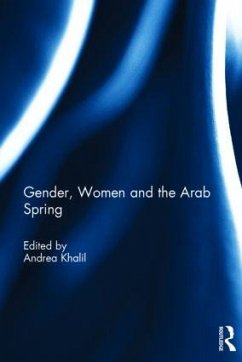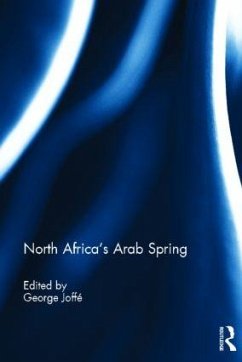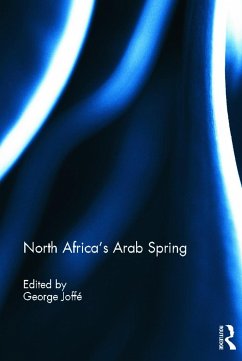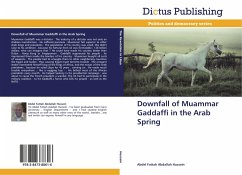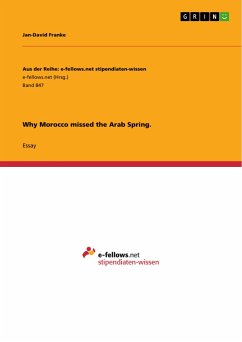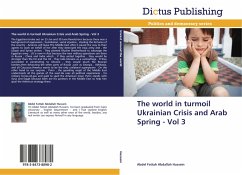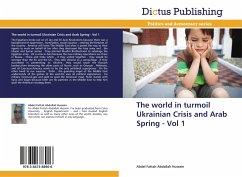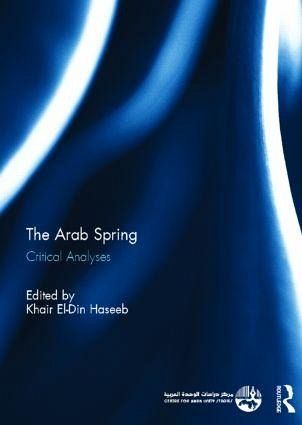
Gebundenes Buch
The Arab Spring
Critical Analyses
Herausgeber: Haseeb, Khair
Versandkostenfrei!
Versandfertig in 1-2 Wochen

PAYBACK Punkte
60 °P sammeln!




Published as a special issue of Contemporary Arab Affairs, this volume provides a wealth of insider information as well as valuable analytical tools and models for understanding the Arab Spring.
Khair El-Din Haseeb is the founding Director of the Centre of Arab Unity Studies in Beirut and currently the Chairman of its Board of Trustees and Executive Committee. He has played a highly active and influential role in Arab nationalist concerns and initiatives since the 1970s. From 1976 to 1984, he served as Chief of the Natural Resources Science and Technology Division of the United Nations' Economic Commission of Western Asia. Previous to that he was Professor of Economics at the University of Baghdad and he served as Governor and Chairman of the Board of the Central Bank of Iraq from 1963 to 1965. He is the author of numerous books and articles in both Arabic and English including The Future of the Arab Nation (Routledge, 1991), Arab-Iranian Relations (British Academic Press, 1998), and, The Arabs and Africa (Croom Helm, 1985). Youssef Mohammed Sawani is the Acting Director General for the Centre of Arab Unity Studies in Beirut and Professor of Political Science at the University of Tripoli, Libya. With a Ph.D. in International Relations from the University of Kent, UK, he is also Editor-in-Chief of Al Mostaqbal Al Arabi in Beirut and a member of the Editorial Board of Contemporary Arab Affairs. He is the author of numerous books and articles in both English and Arabic, including 'The 'end of pan-Arabism' revisited: reflections on the Arab Spring', Contemporary Arab Affairs 5 (3), 2012; and, co-edited with Abd Al Illah Belqaziz, Revolution and Democratic Transition in the Arab World: A Road Map (Centre for Arab Unity Studies, 2012, Arabic text).
Produktdetails
- Verlag: Routledge
- Seitenzahl: 328
- Erscheinungstermin: 22. März 2013
- Englisch
- Abmessung: 250mm x 175mm x 22mm
- Gewicht: 747g
- ISBN-13: 9780415810364
- ISBN-10: 0415810361
- Artikelnr.: 36622294
Herstellerkennzeichnung
Libri GmbH
Europaallee 1
36244 Bad Hersfeld
gpsr@libri.de
Für dieses Produkt wurde noch keine Bewertung abgegeben. Wir würden uns sehr freuen, wenn du die erste Bewertung schreibst!
Eine Bewertung schreiben
Eine Bewertung schreiben
Andere Kunden interessierten sich für


